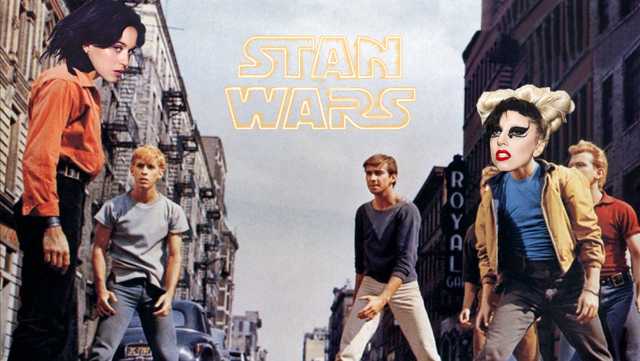Think back to the late '90s and early aughts. The pop music landscape was divided, a civil war between Backstreet Boys and 'N Sync fans. The rivalry usually took the innocuous form of adolescents gloating or crying over which band snatched the #1 spot on MTV's daily music video countdown TRL. Seems downright cute when compared to the current state of stan wars.
With the emergence of social media platforms like Twitter that make online bullying so much easier than the random forums of yore, the West Side Story-esque turf wars have become increasingly troublesome. This week, both Katy Perry and Lady Gaga released highly-anticipated singles from their upcoming projects ("Roar" and "Applause," respectively). Some of Katy Perry's "Katy Cats" think Lady Gaga pushed up her single's release to stop Katy Perry's momentum, while Gaga's "Little Monsters" think Katy Perry isn't even in Gaga's league. Things got heated enough for Gaga to play referee, telling her legion of fans: "don't fight with katy's fans, or anyone. STOP THE DRAMA. START THE MUSIC. pop music is fun, and these 'wars' are not at all what I'm about."

But this phenomenon isn't an isolated incident between these two camps; feud culture extends to most fan bases that are centered around a female figure. Madonna vs. Gaga. Mariah vs. Nicki Minaj. Miley vs. Selena Gomez. Beyonce vs. Rihanna. Britney vs. Christina. Are you sensing a pattern here? Pitting women against women isn't a new concept, but that doesn't make it any less troubling.
Over the past few months, Robin Thicke and Justin Timberlake have been competing for the Song of the Summer 2013 crown with similar aesthetics and nearly identical music videos in which naked women dance for them (that's an issue for another article). But any disagreements surrounding these two male artists stays focused on the music itself, while anything to do with female singers devolves into intensely personal attacks, too often on the performers' physical appearances.



